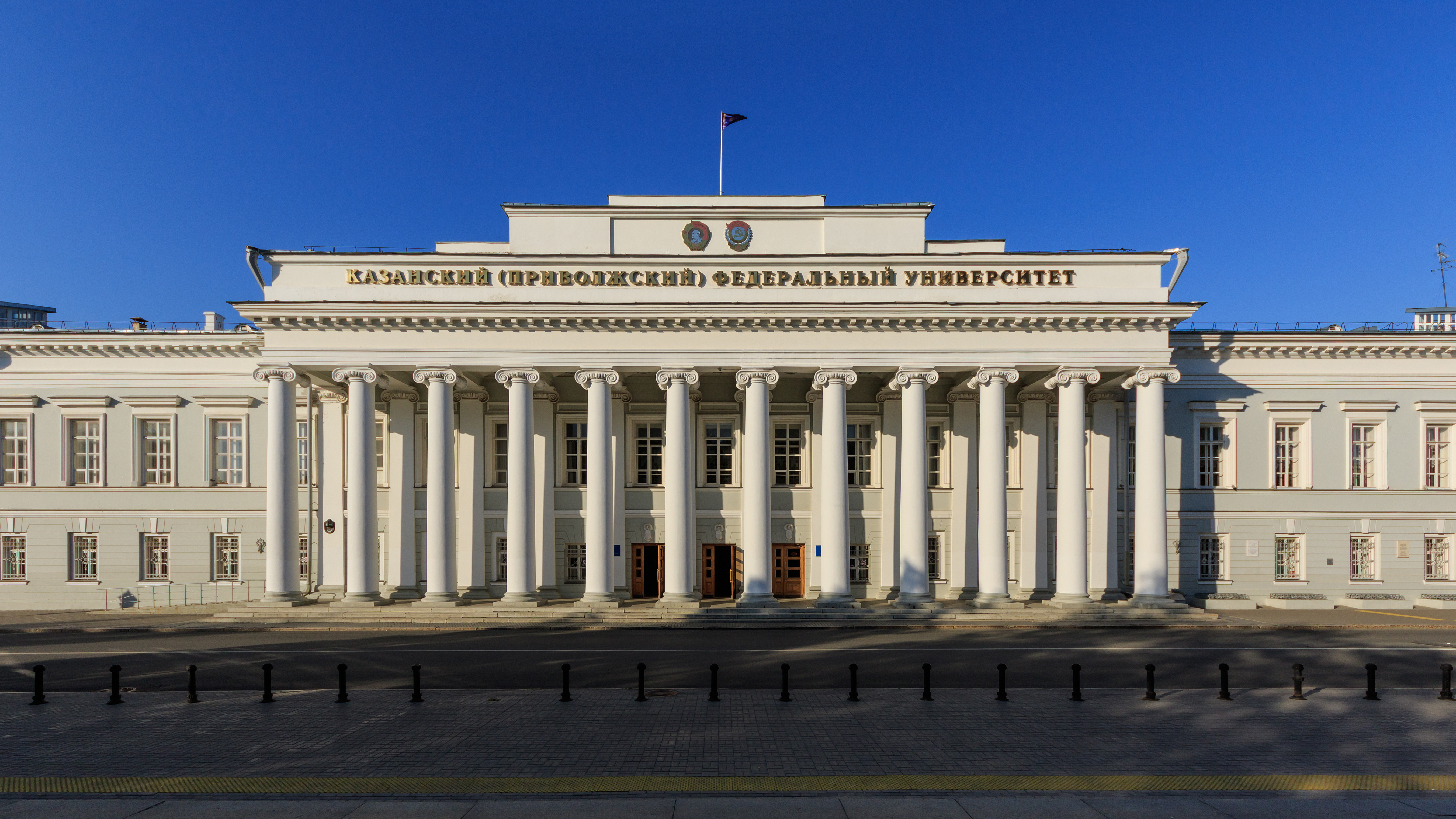Kazan Federal University
 Kazan (Volga region) Federal University (, ) is a public research university located in Kazan, Russia.
Kazan (Volga region) Federal University (, ) is a public research university located in Kazan, Russia.The university was founded in 1804 as Imperial Kazan University, which makes it the second oldest continuously existing tertiary education institution in Russia. Founder of non-Euclidean geometry Nikolai Ivanovich Lobachevsky served there as the rector from 1827 until 1846. In 1925, the university was renamed in honour of its student Vladimir Ilyich Ulyanov (Lenin). The university is known as the birthplace of organic chemistry due to works by Aleksandr Butlerov, Vladimir Markovnikov, Aleksandr Arbuzov, and the birthplace of electron spin resonance discovered by Evgeny Zavoisky.
In 2011, Kazan University received a federal status. It is also one of 18 Russian universities that were initially selected to participate in the Project 5-100, coordinated by the Government of the Russian Federation and aimed to improve their international competitiveness among the world's leading research and educational centers. In 2021, KFU joined Priority 2030, Russia's new academic excellence project.
As of early 2023, the university comprised 20 primary educational units, 3 of which were territorial branches, including one overseas branch in Uzbekistan. More than 52,000 students were enrolled in over 600 degree programs at undergraduate and postgraduate level (including doctoral and double-degree programs with partner universities); the number of international students was about 11,500 from 101 countries. Current research priorities are biomedicine, materials science, hydrocarbon industry, new energy sources, IT and cyber-physical systems, and comprehensive development of human potential. Provided by Wikipedia
Please enable Javascript.
Please upgrade your browser.